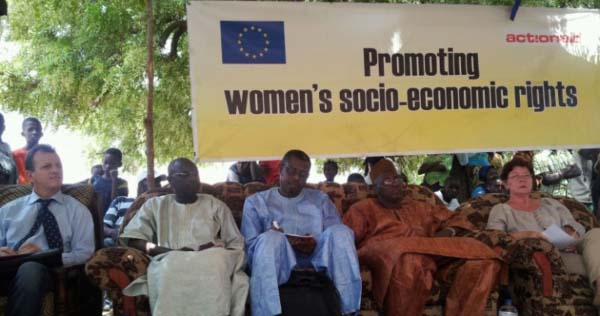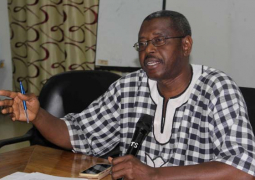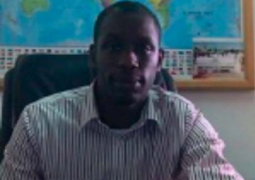
The project came through Action Aid partnership with the National Women’s Farmers Association (NAWFA) and the Female Lawyers Association The Gambia (FLAG), who signed the project agreement with the European Union. In his launching statement, Central River Region governor Ganye Touray highlighted the significance of the project which aimed at promoting women’s access to socio-economic rights and economic empowerment in the Niamina East, West and Dankunku.
He added that the targeted communities would benefit significantly, which is critical for the development of the three targeted districts and by extension the nation.
Governor Touray urged all key stakeholders, local authorities, governance structures, community, district and regional levels, influential people and families to support this worthy course.
Touray revealed the government’s commitment to the socio-economic development of its people, saying it had already created the enabling environment for that to happen.
The project would complement efforts at developing the region, he added, saying: “Socio-economic rights are a vital aspect of the human rights agenda for women; denying them access, for example, land and other economic resources, mean violation of their rights.”
The CRR governor further stated that working to guarantee women’s socio-economic rights in such contexts could be an avenue towards development and better standard of living.
He said development partners and the NGO community played a vital role in complementing government’s effort towards the development of the nation, which would always be appreciated by the government.
He thanked the European Union and Action Aid International The Gambia for the support. EU Charge D’ Affairs, Madam Agnes Guillaud, said the Gambia development strategy programme for PAGE 2012 to 2015 envisages a strong role for civil society, adding that civil society organizations working in the area of women’s empowerment and gender equality are vibrant and often a catalyst for positive change in The Gambia.
She said poverty and gender inequality persist in The Gambia. Despite the government’s strong commitment, women still continue to face discrimination in access to social and economic rights.
Madam Guillaud said that over the years civil society groups have become an important channel for delivery of social services and implementation of development programmes to complement government’s efforts.
She added that the project funded by the EU’s thematic programme “Non-State Actors (NAS) and Local Authorities (LA) in development followed an open call for proposals in The Gambia on promoting gender equality through political, social and economic rights for women."
She said the nine proposals were received and assessed by the EU delegation.
In December, she said, the EU signed a contract with the Action Aid, contributing around D19 million to series of activities to be run by Action Aid in conjunction with their local partners, the National Women’s Farmers Association (NAWFA) and the Female Lawyers Association (FLAG).
She however revealed that the three-year project was intended to target 122 small-holder farmer women’s groups actively engaged in the agricultural sector.
She called on all to work collectively, at the community, district and national levels, for the success of the project.
ActionAid The Gambia executive director Omar Badjie said the occasion marked the beginning of a journey aimed at positively changing the lives of vulnerable people in the society “the women farmers".
He said it also marked the beginning of a significant and strategic relationship between Action Aid International The Gambia (AAITG) and the EU in The Gambia, as well as to strengthen the relationship between Action Aid, NAWFA and FLAG.
Director Badjie said women constitute over 40 percent of the agricultural labour force in developing countries, and over 50 percent in sub-Saharan Africa, adding that in The Gambia more than 60 percent of small-holder farmers are women. Providing women with secure rights to land and reliable access to production resources would play a critical and significant role in enhancing the women productivity, self-confidence for more effective and meaningful participation in decisions that affect their lives, Badjie said.
He said the project builds on the results and key outcomes of research carried out by ActionAid and its partners in The Gambia in the past two years on women’s ownership and access to land and other productive resources.He said the project also fits well into the national gender and women empowerment policy 2010 to 2020, which sets the national priorities for the gender equity and women empowerment and has also recognised the need for concerted efforts from NGOs and other development partners in complementing government’s efforts.
He thanked the EU for providing the much needed funds to do the work, while commending FLAG and NAWFA for their hard work.
Read Other Articles In Article (Archive)
Comedian Lamarana Jallow in Court
Feb 24, 2009, 5:58 AM



